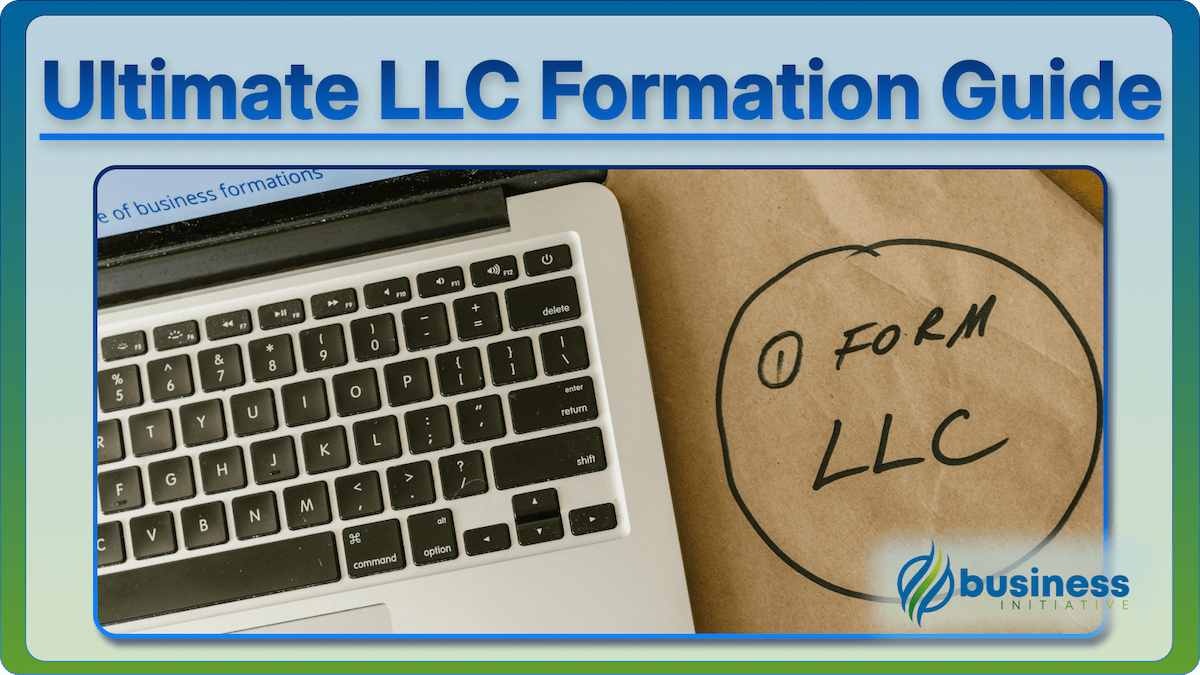You’re comparing formation providers.
But pricing is confusing. Base prices are misleading. Total costs are hidden.
You need a fair comparison.
What’s included. What’s extra. Total first-year cost. Ongoing expenses.
This framework shows you how to compare.
Comparison template. Cost breakdown. Fair evaluation. Your decision.
Read this. Use the framework. Compare fairly.
 Key Takeaways
Key Takeaways
- Compare total first-year costs, not just base prices—initial fees are misleading, total first-year cost is what matters
- List all required services for each provider—state filing, publication, registered agent, business licenses, and expedited processing
- Calculate initial costs plus first-year ongoing costs—annual reports, franchise taxes, registered agent renewals, and business license renewals
- Factor in service quality and value—cheapest isn't always best, consider service quality, support, and included features
- Use the comparison template to evaluate fairly—structured comparison prevents mistakes and ensures you choose the best value
 Table of Contents
Table of Contents

Why Framework Matters
Framework ensures fair comparison.
What happens if you don’t use a framework:
- Compare apples to oranges
- Miss hidden costs
- Choose wrong provider
- Pay more than needed
What happens if you use a framework:
- Compare fairly
- See all costs
- Choose best value
- Save money
The reality: Framework prevents mistakes and ensures fair comparison.
Step 1: List All Services
What to list:
- State filing fees
- Publication requirements
- Registered agent services
- Business licenses
- EIN application
- Operating agreement
- Expedited processing (if needed)
Why it matters: You need to compare the same services for each provider.
Pro tip: Create a checklist of all required services. Use this for each provider. See our true cost guide for what’s typically required.

Step 2: Calculate Initial Costs
What to calculate:
- Base formation fee
- Publication fees (if required)
- Registered agent setup
- Business license fees
- Expedited processing (if needed)
- Name reservation (if needed)
Why it matters: Initial costs vary significantly between providers.
How to calculate:
- Get quote from each provider
- List all initial fees
- Add up total initial cost
- Compare initial totals
Pro tip: Initial costs are just the beginning. Don’t stop here. See our pricing guide for spotting tricks.
Step 3: Calculate Ongoing Costs
What to calculate:
- Annual reports
- Franchise taxes
- Registered agent renewals
- Business license renewals
- Compliance tracking (if needed)
Why it matters: Ongoing costs continue every year and add up.
How to calculate:
- Ask about annual fees
- Check state requirements
- Calculate first-year ongoing
- Plan for future years
Pro tip: Ongoing costs are often hidden. Always ask about annual fees. See our budgeting guide for planning costs.

Step 4: Compare Total Costs
What to compare:
- Initial costs + first-year ongoing
- Total first-year expense
- Ongoing annual costs
- Multi-year totals
Why it matters: Total first-year cost is the real comparison.
How to compare:
- Add initial + first-year ongoing
- Compare first-year totals
- Factor in ongoing annual costs
- Consider multi-year value
Pro tip: Always compare total first-year costs, not just initial fees. This is the fair comparison.
Step 5: Evaluate Value
What to evaluate:
- Total cost vs. service quality
- Included features
- Support and service
- Reputation and reliability
Why it matters: Cheapest isn’t always best. Value matters.
How to evaluate:
- Compare total costs
- Assess service quality
- Review included features
- Check reputation
Pro tip: Balance cost with value. Sometimes paying more gets you better service and fewer problems.

Comparison Template
Use this template to compare providers:
Provider Comparison Table
| Service | Provider A | Provider B | Provider C |
|---|---|---|---|
| Initial Costs | |||
| Base formation fee | $X | $Y | $Z |
| Publication (if required) | $X | $Y | $Z |
| Registered agent setup | $X | $Y | $Z |
| Business license | $X | $Y | $Z |
| Expedited processing | $X | $Y | $Z |
| Subtotal Initial | $X | $Y | $Z |
| Ongoing Costs (First Year) | |||
| Annual report | $X | $Y | $Z |
| Franchise tax | $X | $Y | $Z |
| Registered agent renewal | $X | $Y | $Z |
| Business license renewal | $X | $Y | $Z |
| Subtotal Ongoing | $X | $Y | $Z |
| Total First Year | $X | $Y | $Z |
| Ongoing Annual (Year 2+) | $X | $Y | $Z |
| Service Quality | Rating | Rating | Rating |
| Included Features | List | List | List |
| Support Quality | Rating | Rating | Rating |
How to Use the Template
Step 1: List all required services in the first column.
Step 2: Get quotes from each provider for each service.
Step 3: Fill in costs for each provider.
Step 4: Calculate subtotals and totals.
Step 5: Evaluate service quality and value.
Step 6: Make your decision based on total value.
Pro tip: Use this template for every provider you’re considering. It ensures fair comparison and prevents mistakes.
Your Next Steps
Use the framework. Compare fairly. Choose the best value.
This Week:
- Review this guide
- List all required services
- Get quotes from providers
- Use comparison template
This Month:
- Complete comparison for all providers
- Calculate total first-year costs
- Evaluate service quality
- Make your decision
Going Forward:
- Track actual costs
- Compare to your comparison
- Adjust if needed
- Share framework with others
Need help? Check out our true cost guide for detailed breakdowns, our budgeting guide for planning costs, our pricing guide for spotting tricks, and our horror stories guide for learning from mistakes.
Stay informed about business strategies and tools by following us on X (Twitter) and signing up for The Initiative Newsletter.
FAQs - Frequently Asked Questions About Transparent Pricing Framework: How to Compare Providers Apples-to-Apples

Why can't you compare formation and compliance provider quotes without a normalization framework?
Providers bundle different services, format quotes differently, and hide renewal costs—without standardized cost buckets, you're comparing oranges to a forklift.
Learn More...
The article explains that one provider might include registered agent coverage in the base price while another bills it separately. One charges per filing while another bundles state fees with a markup. Without a framework that breaks every quote into the same categories, you end up debating semantics instead of comparing actual costs.
The solution is to normalize every quote into four standardized cost buckets: government pass-throughs (filing fees, publication, certificates), professional services (entity drafting, EIN, bylaws), recurring services (registered agent, compliance software, mail scanning), and add-ons (expedited filings, banking support, franchise tax prep). If a provider refuses to break out their numbers into these categories, the article recommends walking away.
What five criteria should you score formation service providers on besides price?
Price accuracy, scope fit, transparency of terms, service level quality, and flexibility to add or remove states without penalties.
Learn More...
The scoring matrix rates each provider 1-5 on five dimensions. Price accuracy: are government fees billed at actual cost or marked up? Scope fit: does the service cover all your requirements? Transparency: are renewal terms, escalation clauses, and opt-out policies clearly documented in writing? Service level: what are their response times, support channels, and do you get a dedicated contact? Flexibility: can you add or remove states midyear without penalty fees?
The article emphasizes weighting each category based on your priorities—transparency and flexibility might carry more weight than minor price differences. The highest weighted score wins, not simply the cheapest sticker price.
What documents should go into a provider data room before you start comparing?
Itemized quote PDFs with dates, service scope descriptions or SLAs, contract terms including renewal and cancellation clauses, customer references, and your own internal requirements list.
Learn More...
The article specifies five categories of documents to collect. Quotes: request itemized PDFs with dates, version numbers, and contact information from each provider. Service descriptions: capture links to each provider's scope-of-work or SLA documentation. Contract terms: gather renewal dates, cancellation windows, and escalation clauses. References: request case studies or customer lists from companies similar to yours. Internal needs: compile your own requirement list covering all states and services needed.
Store everything in a shared folder so all stakeholders—finance, legal, and operations—see the same source material. This data room becomes a reusable asset: when you evaluate new providers in the future, you drop their documents into the same structure.
How does the six-step comparison playbook work from kickoff to final archive?
Define requirements and weights, collect standardized data, normalize into cost buckets, score providers with stakeholders, negotiate using the matrix, and archive everything for future launches.
Learn More...
The playbook proceeds through six sequential steps. Kickoff: define requirements and scoring weights with finance, legal, and operations stakeholders. Data collection: request quotes, SLAs, and references using a standard template so all providers submit comparable information. Normalization: enter every number into the four cost buckets and flag any missing data. Scoring session: meet with stakeholders to score providers live against the matrix criteria. Negotiation: use the completed scoring matrix to justify requests for better terms—providers respond differently when they see objective data behind your requests. Archive: save the final matrix, contracts, and decision notes in your compliance vault so the next expansion team inherits a vetted process.
How do benchmarking tools prevent providers from inflating their pricing?
When providers know you have verifiable benchmarks for government fees, registered agent costs, and service values, they skip the fluff and present real numbers.
Learn More...
The article recommends using verified reference points to anchor your negotiations. Benchmark registered agent fees against published market rates. Compare government pass-through fees to actual state filing costs listed on Secretary of State websites. If a provider bundles value-added tools like budgeting software, compare that tool's standalone value to building your own.
The psychological effect is significant: when providers realize you have verifiable data to check their claims against, they're far less likely to inflate fees or hide markups. The article positions benchmarking as the key lever that transforms vendor conversations from sales pitches into factual comparisons.
What are the risks of spending too long on the comparison process?
Analysis paralysis can delay urgent filings. Set hard deadlines for the comparison, watch for confirmation bias toward friendly vendors, and establish minimum disclosure standards for providers who resist transparency.
Learn More...
The article identifies three comparison risks. Analysis paralysis: endless scoring and re-scoring delays filings that may have regulatory deadlines—set firm timelines for completing the evaluation. Confirmation bias: you might unconsciously overweight a vendor you already like despite weaker objective terms—the scoring matrix is specifically designed to counteract this by forcing objective comparison. Data gaps: if providers refuse to provide transparent breakdowns, you still need to make a decision—set minimum disclosure standards so you know when to walk away versus when to proceed with incomplete information.
The framework is designed to be reusable, so the initial investment in building the comparison template pays off by making every future provider evaluation faster and more consistent.
Sources & Additional Information
This guide provides general information about pricing comparison. Your specific situation may require different considerations.
For true formation costs, see our True Cost Guide.
For budgeting, see our Budgeting Guide.
For pricing understanding, see our Pricing Guide.
For learning from mistakes, see our Horror Stories Guide.
Consult with professionals for advice specific to your situation.


